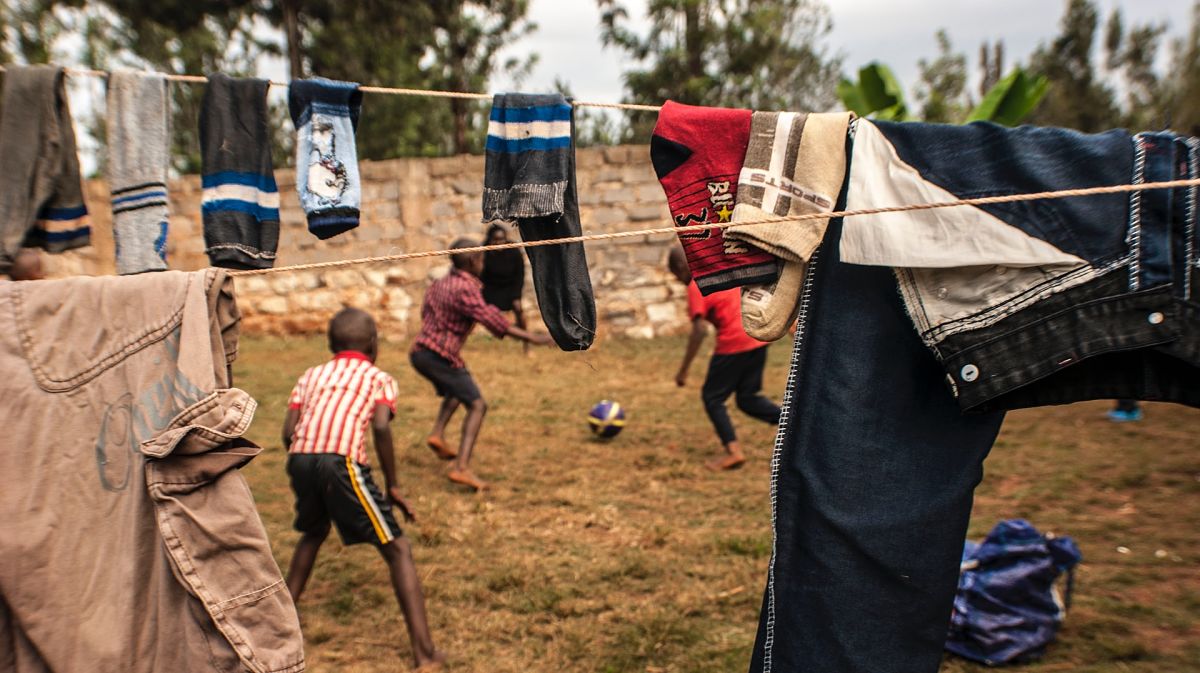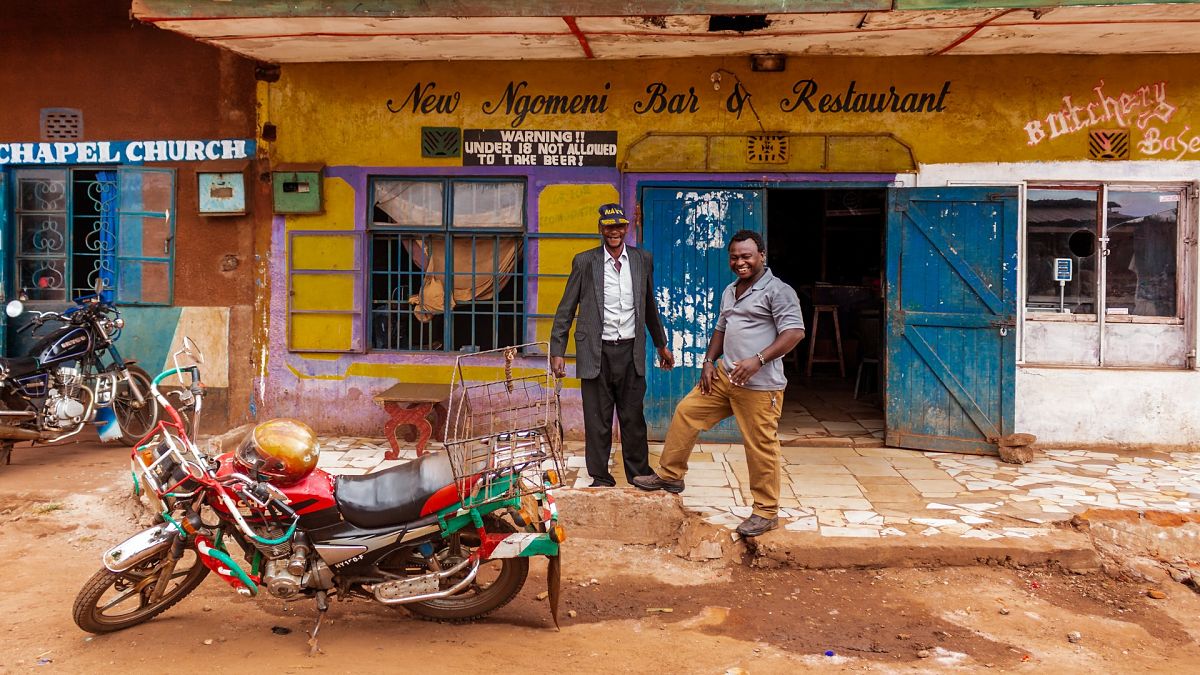Kenya - Culture, Etiquette and Business Practices
Welcome to this guide to Kenyan culture!
What will you Learn?
You will gain an understanding of a number of key areas including:
- Language
- Religion and beliefs
- Culture and society
- Social etiquette and customs
- Business culture and etiquette
Facts and Statistics
Location: Eastern Africa, bordering the Indian Ocean, between Somalia and Tanzania.
Capital: Nairobi.
Climate: varies from tropical along coast to arid in interior.
Population: 51+ million (estimated - 2019.)
Ethnic Make-up: Kikuyu 22%, Luhya 14%, Luo 13%, Kalenjin 12%, Kamba 11%, Kisii 6%, Meru 6%, other African 15%, non-African (Asian, European, and Arab) 1%.
Religions: Protestant 45%, Roman Catholic 33%, Muslim 10%, indigenous beliefs 10%, other 2%.
Government: republic

The Massai of Kenya. Photo by Randy Fath on Unsplash
The Language
Kenya is a multilingual country. Although the official languages are Swahili and English, there are actually a total of 62 languages spoken in the country (according to Ethnologue).
These mainly consist of tribal African languages as well as a minority of Middle-Eastern and Asian languages spoken by descendants of foreign settlers (i.e. Arabic, Hindi, etc). The African languages come from three different language families - Bantu languages (spoken in the center and southeast), Nilotic languages (in the west), and Cushitic languages (in the northeast).
Kenyan Society and Culture
The Kenyan People
- Kenya is not a homogeneous country ethnicity wise.
- The make-up of Kenyans is primarily that of 13 ethnic groups with an additional 27 smaller groups.
- The majority of Kenyans belong to ‘Bantu’ tribes such as the Kikuyu, Luhya and Kamba.
- There are also the ‘Nilotic’ tribes such as the Luo, Kalenjin, Maasai and Turkana.
- The ‘Hamitic’ people include the Turkana, Rendille and Samburu.
- Around 13% of the population are of non-African descent, i.e. Indian, Arab and European.
Religion
The Kenyan Constitution guarantees freedom of religion. Around half the population are Christians, 10% Muslim and there are small Hindu and Sikh minorities.
The balance of the population follows traditional African, often animist, beliefs. Christians tend to be concentrated in the west and central sections of the country while Muslims cluster in the eastern coastal regions. Most Kenyans interweave native beliefs into a traditional religion.
Group Orientation
Kenyans are group-orientated rather than individualistic. “Harambee,” (coming from the Bantu word meaning “to pull together”) defines the people’s approach to others in life.
The concept is essentially about mutual assistance, mutual effort, mutual responsibility and community self-reliance. This principle has historically been practiced by every ethnic group with its roots in cooperative farming or herding. Harambee took on a more political resonance when used at the time of independence by Jomo Kenyatta as a way to bring people together.
The Role of the Family
As you might expect in a group-orientated culture, the extended family is the basis of the social structure.
It includes relatives on both sides of the family as well as close friends. Quite often the husband’s parents will live with the nuclear family when they get older and can no longer care for themselves. When people marry, they join their families, thus ensuring that there will always be a group to turn to in times of need.
Ancestors
Like most Africans, Kenyans place a large emphasis on the respect and reverence of their deceased ancestors. This is not ancestor worship per se, but rather a belief that when someone dies their spirit lives on and must be acknowledged. The belief is that the person only really dies completely when their relatives no longer remember them.
One’s ancestors are thought to be able to influence events in life since they are in a limbo state and closer to God than the living. Therefore, they may make offerings to them or name a baby after one so that his spirit can live in the child. Demonstrating respect towards ancestors is believed to maintain harmonious relationships within the family, extended family, and clan or tribe.

Football (soccer) is very popular in Kenya with many people supporting a European team. Photo by Belle Maluf on Unsplash
Etiquette and Customs in Kenya
Meeting and Greeting
- The most common greeting is the handshake.
- When greeting someone with whom you have a personal relationship, the handshake is more prolonged than the one given to a casual acquaintance.
- Close female friends may hug and kiss once on each cheek instead of shaking hands.
- When greeting an elder or someone of higher status, grasp the right wrist with the left hand while shaking hands to demonstrate respect.
- Muslim men/women do not always shake hands with women/men.
- The most common greeting is “Jambo?” (“How are you?”), which is generally said immediately prior to the handshake.
- After the handshake it is the norm to ask questions about the health, their family, business and anything else you know about the person.
- To skip or rush this element in the greeting process is the height of poor manners.People are generally addressed by their academic, professional or honorific title followed by their surname.
- Once a personal relationship has developed, you may be able to address a person by their title and first name, first name alone, or nickname. Wait for the Kenyan to determine that your friendship has reached this level of intimacy.
- Women over the age of 21 are often addressed as “Mama” and men over the age of 35 are often addressed as “Mzee”. Children generally refer to adults as Aunt or Uncle, even if there is not a familial relationship.
Gift Giving
- In general, Kenyans give gifts for events of significance in a person’s life or days of religious significance.
- Gifts need not be expensive. In fact, practical gifts are preferred. Kenya is a poor country and a gift of something that the person cannot generally afford is always welcome.
- It is customary to give small gifts to servants, trades people, and service workers at Christmas.
- If invited to dinner at a Kenyan’s home, bring pastries, flowers, or sweets for the hostess. In rural areas, gifts of sugar or tea are quite common.
- Gifts should be nicely wrapped, although there are no prohibitions concerning the colour of paper.
- Do not bring alcohol unless you know that your host drinks.
- Gifts should be given using the right hand only or both hands. Never use the left hand.
Dining Etiquette
- Kenyans table manners are relatively formal.
- Dining patterns vary tremendously according to ethnicity, location and socio-economic position of the host.
- The best course of action is to behave formally. When is doubt, watch what others are doing and follow their lead.
- Except for formal functions, there is generally not a seating plan. However, there may be a special place for the most honoured guest.
- Guests are expected to wash their hands before and after the meal. In some homes, a washing basin will be brought to the table. If so, hold your hands over the basin while water is poured over them.
- The honoured guest is usually served first, followed by the men, children, and women.
- Servants often bring the courses to individual guests who are expected to take what they want.
- Do not begin eating until the eldest male has been served and started eating.
- It is a good idea to take a small amount the first time the platters are brought so that you may take second helpings when urged.
- Beverages are not generally served with meals since Kenyans think it is impolite to eat and drink at the same time. They are generally served at the completion of the meal.
- It is considered polite to finish everything on your plate, although it is not mandatory.

Always take your time when meeting people to properly chat. Photo taken in Nairobi by Lorenzo Cerato on Unsplash
Kenyan Business Culture and Etiquette
Communication Style
Direct and frank communication is not the norm in Kenya. Kenyans will always attempt to qualify what they say so that the message is delivered in a sensitive way. This comes down to wanting to protect people’s face and the relationship. If the relationship is intimate the communication style will become more direct. For newly established and more formal relationships, diplomacy will be of utmost importance.
In their attempt not to cause problems, Kenyans often use metaphors, analogies and stories to make a point. They are uncomfortable with blunt statements. If you are from a culture that prizes directness, you may wish to moderate your delivery style. It is also up to you to read between the lines and decipher what may really being said. With this in mind, criticism should be delivered in private and given in a circumspect manner.
Kenyans may gesture for emphasis when speaking. Loud voices are generally only used during disagreements in business situations, although in rural areas, louder speaking tones are the norm. Showing anger is considered a sign of mental instability. Kenyans pride themselves on their emotional control and expect the same in others.
Since maintaining honor and dignity are paramount, Kenyans may offer what they believe is the expected response rather than say something that might embarrass the other person.
They often go out of their way to keep from doing something that could bring shame to another person. They expect business colleagues and superiors to inquire about their family before beginning a business discussion.
Meeting and Greeting
- Handshakes are the most common greeting in business.
- When being introduced to someone for the first time, the handshake is short, while handshakes among people with a personal relationship are longer.
- It is a sign of respect to lower your eyes when greeting someone of a higher status or someone who is obviously older than you.
- Men should wait for a woman to extend her and first.
- To rush a greeting is extremely rude. Take the time to inquire about the other person’s general well-being, family, and business in general.
- Titles are important. Use the honorific title plus any academic or professional title and the surname.
- Wait to be invited before moving to a first name basis.
- Business cards are exchanged without formal ritual.
- Present and receive business cards with two hands.
Business Meetings
- Meeting schedules may be structured or not at all depending upon the ownership of the company. In British or Indian owned companies, agendas will be used and followed.
- As relationships are important in Kenya, devote time to small talk in order to get to know your hosts and vice-versa. It is a good idea to allow your Kenyan hosts determine when it is time to begin the business discussion.
- Meetings seldom have scheduled ending times since what matters is finishing the meeting in a satisfactory manner to all concerned. In fact, Kenyans are amused at the concept of an ending time, since they believe the meeting only ends when all parties are finished.
- Kenyans value tradition. Therefore, it is a good idea to provide a historical framework or context when attempting to introduce a new idea or process. They may ask questions until they feel comfortable and are able to proceed satisfactorily.
Management
- Read our guide to Kenyan Management Culture for more detailed information.
THANKS FOR READING OUR GUIDE TO KENYA! REMEMBER TO SHARE IT!
Do you need to cite this page for school or university research?
Please see below examples.
Simply change the country name depending on which guide you are referencing.
MLA Format:
Commisceo Global Consulting Ltd. Afghanistan - Language, Culture, Customs and Etiquette. www.commisceo-global.com. 1 Jan. 2020 https://commisceo-global.com/resources/country-guides/afghanistan-guide
APA Format:
Commisceo Global Consulting Ltd. (2020, January 1) Afghanistan - Language, Culture, Customs and Etiquette. Retrieved from https://commisceo-global.com/resources/country-guides/afghanistan-guide
Harvard Format:
Commisceo Global Consulting Ltd. (2020). Afghanistan - Language, Culture, Customs and Etiquette. [online] Available at: https://commisceo-global.com/resources/country-guides/afghanistan-guide [Accessed ENTER DATE].

 +44 0330 027 0207 or +1 (818) 532-6908
+44 0330 027 0207 or +1 (818) 532-6908
